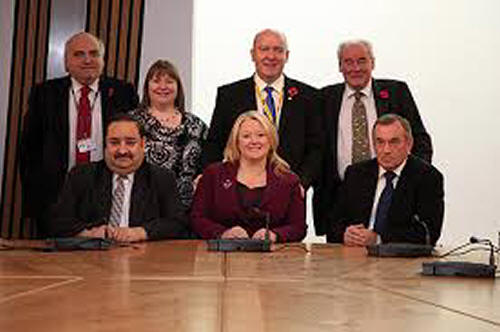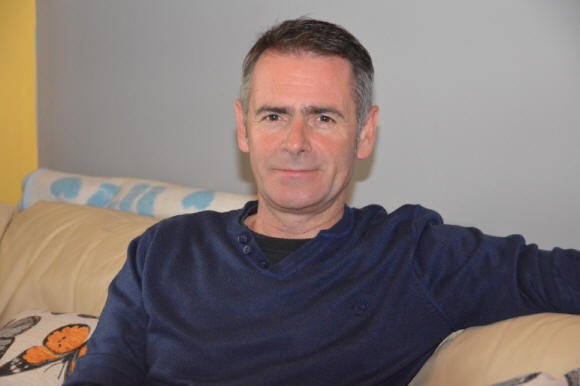|
Europe
It’s
been a very European week!
I’ve
been welcoming the Croatian Ambassador, Dr Ivan Grdesic, first to a
Parliamentary Reception and next day to the European and External
Relations Committee, of which I am convener. Apart from the fact that he
is absolutely delightful individual, there was something very exciting
about his visit. Here is a new European Union member nation, with a
population just a little smaller than ours here in Scotland, delighted
to have joined this family of nations.

Dr Ivan Grdesic,
Ambassador of the Republic of Croatia to the UK, front right,
with members of the European and External Relations Committee
Dr
Grdesic describes his country as “an old nation and a young state.” That
had a ring of our own journey. With a vote for independence in 1990,
Croatia had to set about working out what that independence would
actually look like, all of which took them about 10 years. Absolutely at
the centre of all those negotiations was that they wanted to be in the
European Union.
There
were issues over surrendering accused generals to the Hague tribunal,
about gradually getting all the chapters of the EU acquis communautaire
in place – this is the vast document that sets down standards for new
entrants in areas like justice, economic development, employment
relations, human rights, equality, consumer standards and much more. You
can find out more about it here:
http://tinyurl.com/5sx8khh
But
they got there! And theirs has been a far more complex operation than
will be the case for Scotland with a Yes vote. We already have in place
all of the EU treaties, we are signed up to all the chapters of the
acquis and we are existing members of the EU through the UK’s
membership.
Croatians gradually realised that it wasn’t about Brussels issuing
instructions with which they had to comply, but rather that those
reforms were needed in the country for its own sake, “for the benefit
of our economy, people, democracy, human rights and everything else in
that sea of rules.”
The
Committee meeting coincided with a two day anniversary event – The UK in
Europe 40 Years on: What has it meant for Scotland?
Professor Jo Shaw from Edinburgh University had prepared a short paper
on the subject which you can read here:
http://tinyurl.com/nlddov7. That filled in the background and the
questions to our cross-party panel, including myself, came thick and
fast. Another panel, made up of some of the MEP candidates for 2014,
looked at the question of whether EU membership in Scotland was
different from the rest of the EU.
The
Trade Union Movement
The
Trade Union movement is crucial in representing the voices of ordinary
working people and as you may know, a lot of my own background was
within that movement.
So I
am particularly pleased to see that the Unite union – the biggest one in
Scotland – is warming to the idea of independence. Its secretary, Len
McCluskey has described a Yes vote as “seductive.” He may be feeling
that it is still more so given that local Labour MP, Ian Davidson, has
just sold his own constituents down the line by declaring that he’d
prefer to see 800 jobs go there than see Westminster buy ships from his
Govan constituency in Glasgow within an independent Scotland.
But
Westminster, characteristically, has chosen not to announce where new
shipbuilding for the Royal Navy will take place until after the
Referendum vote. It’s another Project Fear attack designed to scare
people into voting No but it won’t work. I have more faith in the
intelligence of the Scottish electorate than that.
There
are now five different trade unions backing the Yes vote. The GMB has
rather confused its members
http://tinyurl.com/orsr3f8 by telling them that they have all signed
up to the No campaign and that a portion of their union dues would be
spent on that.
This completely threw –
and clearly angered – many GMB members, many of whom have chosen to
either join a different union or stop paying the political levy on those
dues.
One shop steward of 20
years standing in the Scottish Borders, James Moody, described the move
as “a betrayal and a totally disgusting position. They say they had
consultations. Well, we certainly weren’t consulted and talking to other
shop stewards, they weren’t either. I absolutely refuse to have any part
of my union dues spent on a negative and catastrophic campaign against
Scotland’s future.”
Fight on, Jim!
Lung cancer awareness
strategy
Lung cancer remains a big
threat in Scotland particularly. Being aware of early symptoms plays a
really crucial part in recovery rates.
So I am delighted to hear
that Kirk Grannell from Hamilton is now at home recovering from surgery
after his early diagnosis, having been prompted to seek treatment by the
Scottish Government’s awareness campaign.

Kirk Grannell recovering
from surgery at home in Hamilton
Because Kirk’s cancer was treated early on, he’s on the road to a full
recovery and I wish him my very best.
As he
says himself: ““Some people can be scared to find out the worst.
However, once cancer starts spreading, it can be harder to cure. The
quicker you get it dealt with, the better chance you have of recovering.
“I didn’t have many symptoms – but with that one day of pain I knew it
was something serious. I felt it myself that there was something there.
“I hope that the messages of the new Scottish Government campaign will
help others to be aware of the sings of lung cancer. I know how much an
awareness campaign helped me to be aware of the signs. It saved my
life.”
In Scotland, we run our own National Health Service.
As Kirk has made clear, it works. We won’t be privatising it in an
independent Scotland, a position that the Westminster Government is
clearly moving towards.
Another good reason to vote Yes in 2014. |

